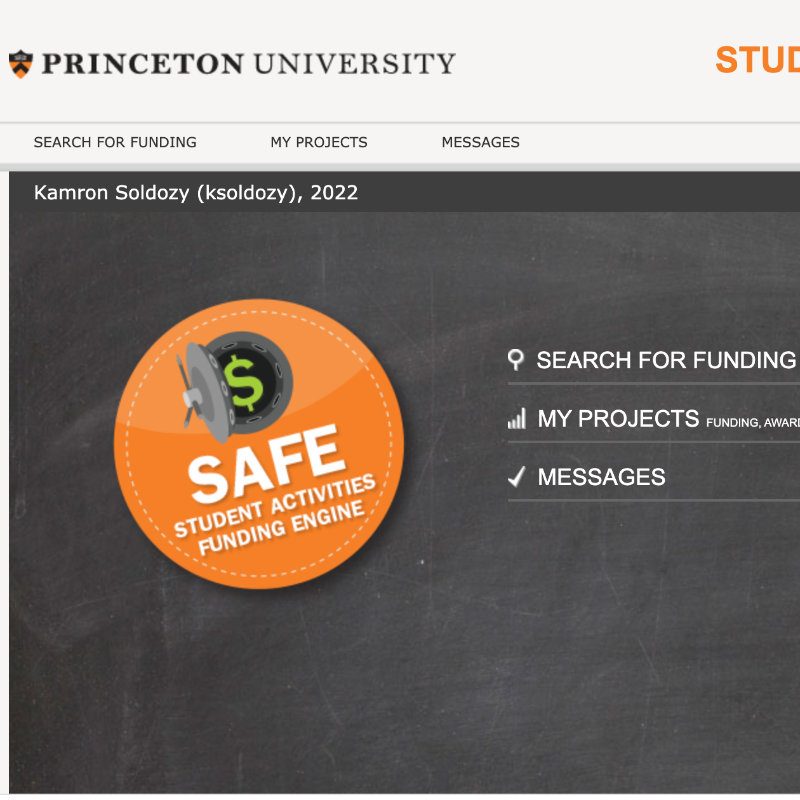We spend a lot of time finding and deciding what internships and jobs to pursue over the summer. There are quite a few posts on this blog alone that help with that process, including this one. After exploring my options, I think I know what I’ll be doing this summer: staying on campus to do research in a neuroscience lab (an experience I’ll talk more about in a future post).
However, knowing what I’ll be doing this summer isn’t all there is to finalizing my summer plans. For one, I don’t know how my experience will actually be funded. Second, I’m unsure where I’ll be staying for the duration of my research.
To better finalize my plans, I turned to SAFE, the Student Activities Funding Engine. SAFE is a website where students can apply for funding for internships and other activities. In addition to finding a relevant funding source for my summer plans, I came across many other interesting funding opportunities for students who have secured unpaid internships over the summer. I’ve gone ahead and summarized a few of them below.

OURSIP: The Office of Undergraduate Research Student Initiated Internship Program (OURSIP) fellowship is awarded to students who have secured unpaid, faculty-mentored research projects on or off-campus. Although the award is usually given to first-years and sophomores, juniors with projects unrelated to their senior theses are also eligible candidates. The funding from OURSIP is contingent on conducting research for at least 35 hours a week for eight contiguous weeks and includes weekly workshops that help the research process proceed smoothly (for on-campus interns only). The application for this program opens January 6th and consists of answering a questionnaire, proposing a tentative budget, and attaching a resume and an unofficial transcript. Additionally, a research adviser will also need to complete a separate form.
PEI SIP: The Princeton Environmental Institute Summer Internship Program is somewhat similar to OURSIP: the funding stream is designated for students who have secured unpaid positions with a host organization. However, the position isn’t limited to conducting research, although the internship should be environmentally focused. First-years, sophomores, and juniors are eligible to apply for this award. In addition to receiving financial compensation, awardees get to present their work at a fall symposium run by the Princeton Environmental Institute. The application deadline for this opportunity is January 10th and involves describing your internship and having a supervisor submit a form indicating their commitment to the project.
ProCES: Like the others, the Program for Community-Engaged Scholarship (ProCES) is meant for students who have secured unpaid positions with a host organization and are in need of funding. In addition to being research focused, the opportunity should also be service or community oriented. The internship can be domestic or international and is available to current sophomores and juniors. The application requires a resume, a cover letter describing your host organization or research project, an unofficial transcript, and a recommendation letter. The application closes on February 15th.
Obviously, these are only a few of the potential awards you can find on SAFE. Additionally, it’s important to recognize that SAFE is not the only path to securing funds for your research; for example, your faculty adviser may have a grant that can support you as a research assistant, in which case you’d be compensated through hourly pay (rather than a stipend) for your research. I plan on getting coffee with my lab director to see what sorts of funding his lab will be able to offer me this summer. In summary, my exploration of SAFE revealed to me a wide array of funding sources we have available to us, and I hope that sharing a few of these opportunities will be useful for you as well. Be sure to check out SAFE for yourself, especially considering that winter break is a great time to get started on these applications.
–Kamron Soldozy, Natural Sciences Correspondent

